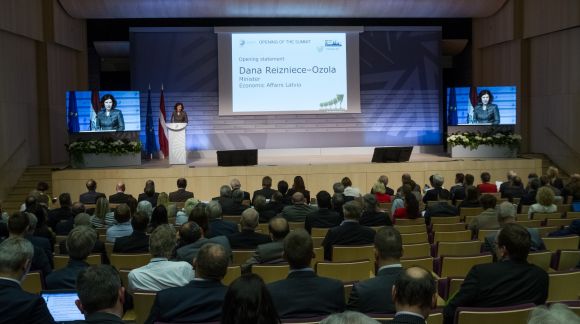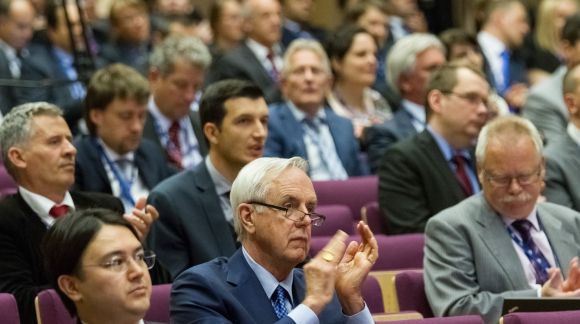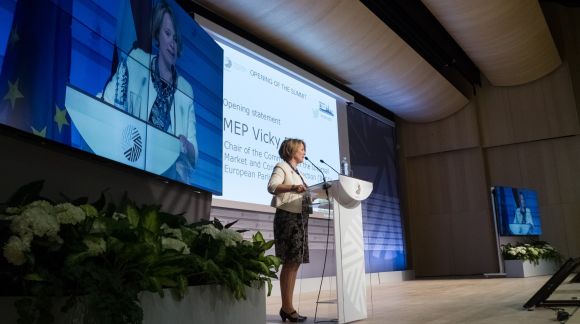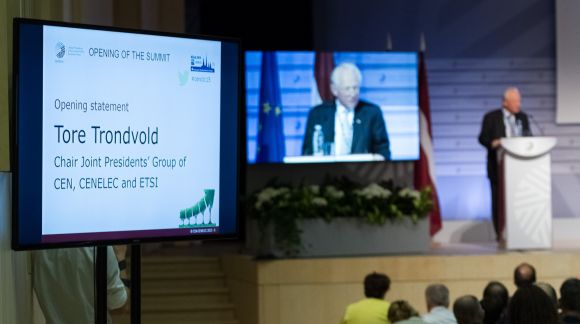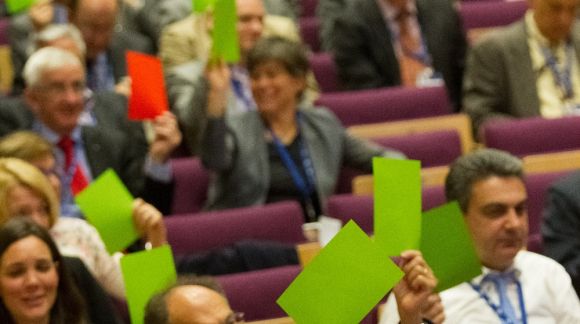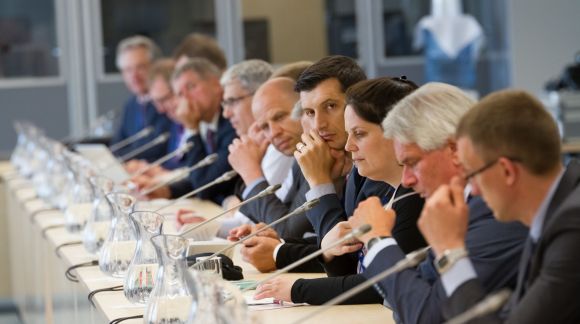In the opening speech, the Latvian Minister for Economic Affairs, Ms Dana Reizniece-Ozola, emphasised the voluntary, market-driven nature of standards that are important for achieving sustainable future goals and the significance of a strategic and determined standards development in order to reach such goals.
“We need new ideas and initiatives in the construction sector, since it is of strategic importance to delivering what the rest of the economy and society needs. Therefore, I believe the time has come to move from words to deeds,” stressed Ms Dana Reizniece-Ozola.
The goal of a “smarter and cleaner” economy in the construction sector translates into improving the energy efficiency of buildings, integrating sustainability into architecture, developing smart cities, linking science and standardisation and advancing the design and management of buildings.
Head of the Latvian Standard, Mr Ingars Pilmanis, emphasised: “While the Europe’s economic recovery is still under way, the issue of competitiveness remains at the core of EU policies. Therefore, it is really important for Europe to make deliberate steps in order to foster contribution of standardisation to the growth of local and global economy”.
The first breakout session of the Summit was devoted to the energy efficiency of buildings which is a key component for economic transformations in “post-crisis” Europe. All participants agreed that standardisation is one of the driving forces of the economy which disseminates best practices and provides energy users with the necessary tools to analyse and adapt their energy consumption patterns.
The second breakout session that was devoted to sustainable building discussed the challenges regarding resource efficiency. The participants of the conference concluded that project planning that provides a more economical use of resources and considers possible scenarios for the reuse of building materials is at the basis of a sustainable building.
The third breakout session on building smart cities highlighted the role of applied innovation, better planning, higher energy efficiency, better transport solutions and intelligent use of information and communication technologies in urban planning. The participants came to the conclusion that there is a need for a landscape of different types of standards encompassing best practices and guidelines for smart city development around the world.
The fourth breakout session was devoted to the building design and management. The participants discussed the challenges of poor information exchange which leads to duplication of activities and increase in costs. The participants acknowledged that using the building information modelling (BIM), a ‘virtual’ building can be constructed to analyse the feasibility of a project which helps to design structures that reduce errors, improve quality and energy efficiency, and speed up the overall construction process, thus promoting competitiveness.
The Summit, organised by the Latvian Ministry of Economic Affairs and the Latvian Standard brought together high-level representatives from the European Parliament, the European Commission, international and European standardization organisations (ISO, IEC, CEN, CENELEC, ETSI), standardisation specialists and entrepreneurs from the EU and other countries. For entrepreneurs, the participation in such a high-level event provided a great opportunityto raise awareness of the benefits of standards and the importance of standardization in order to improve competitiveness; to be actively involved in the standards development process, thus ensuring that the interest of all standardisation stakeholders are represented in the EU technical documents.



